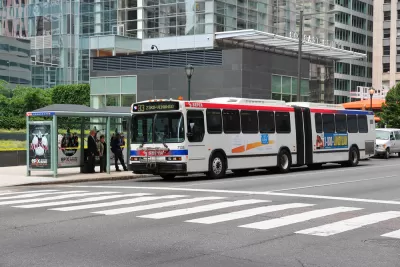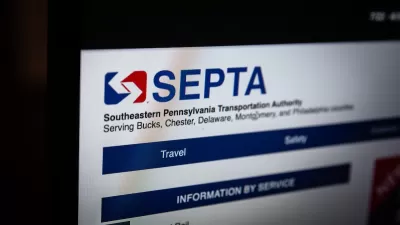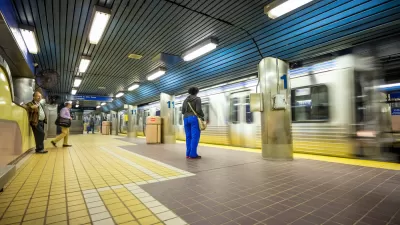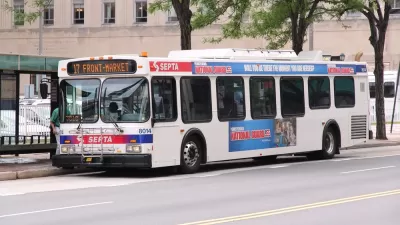Philadelphia wants its city workers back in the office, but getting there may be a challenge.

With the Southeastern Pennsylvania Transportation Authority (SEPTA) facing a $240 million budget deficit, will Philadelphia’s municipal workers have access to reliable public transit as the city demands a return to the office?
“Philadelphia’s transit system is in as tough a spot as any. The system’s buses, subways, trolleys and commuter trains still provide critical service to regional workers,” writes Jared Brey in Governing. Meanwhile, city workers are expected to go to the office five days a week, Yet the agency announced a hiring freeze and service cuts that could impact as much as 20 percent of the system and extend headways to one hour.
While some legislators have proposed alternate funding mechanisms, “lawmakers won’t have much time to strike a deal before SEPTA and other transit systems will need to start implementing service cuts and fare hikes. If that happens, advocates say it will leave riders stranded, stifle the recovery of the city’s downtown and office sector, and cause logistical challenges for big events such as the World Cup and the nation's 250th Independence Day celebration in 2026.”
FULL STORY: Philadelphia Demands City Workers Return to the Office. Can They Get There?

Study: Maui’s Plan to Convert Vacation Rentals to Long-Term Housing Could Cause Nearly $1 Billion Economic Loss
The plan would reduce visitor accommodation by 25,% resulting in 1,900 jobs lost.

North Texas Transit Leaders Tout Benefits of TOD for Growing Region
At a summit focused on transit-oriented development, policymakers discussed how North Texas’ expanded light rail system can serve as a tool for economic growth.

Using Old Oil and Gas Wells for Green Energy Storage
Penn State researchers have found that repurposing abandoned oil and gas wells for geothermal-assisted compressed-air energy storage can boost efficiency, reduce environmental risks, and support clean energy and job transitions.

Private Donations Propel Early Restoration of Palisades Playground
Los Angeles has secured over $1.3 million in private funding to restore the Pacific Palisades playground months ahead of schedule, creating a modern, accessible space that supports community healing after recent wildfires.

From Blight to Benefit: Early Results From California’s Equitable Cleanup Program
The Equitable Community Revitalization Grant (ECRG) program is reshaping brownfield redevelopment by prioritizing projects in low-income and environmental justice communities, emphasizing equity, transparency, and community benefits.

Planting Relief: Tackling Las Vegas Heat One Tree at a Time
Nevada Plants, a Las Vegas-based nonprofit, is combating the city’s extreme urban heat by giving away trees to residents in underserved neighborhoods, promoting shade, sustainability, and community health.
Urban Design for Planners 1: Software Tools
This six-course series explores essential urban design concepts using open source software and equips planners with the tools they need to participate fully in the urban design process.
Planning for Universal Design
Learn the tools for implementing Universal Design in planning regulations.
Ascent Environmental
Borough of Carlisle
Institute for Housing and Urban Development Studies (IHS)
City of Grandview
Harvard GSD Executive Education
Toledo-Lucas County Plan Commissions
Salt Lake City
NYU Wagner Graduate School of Public Service





























